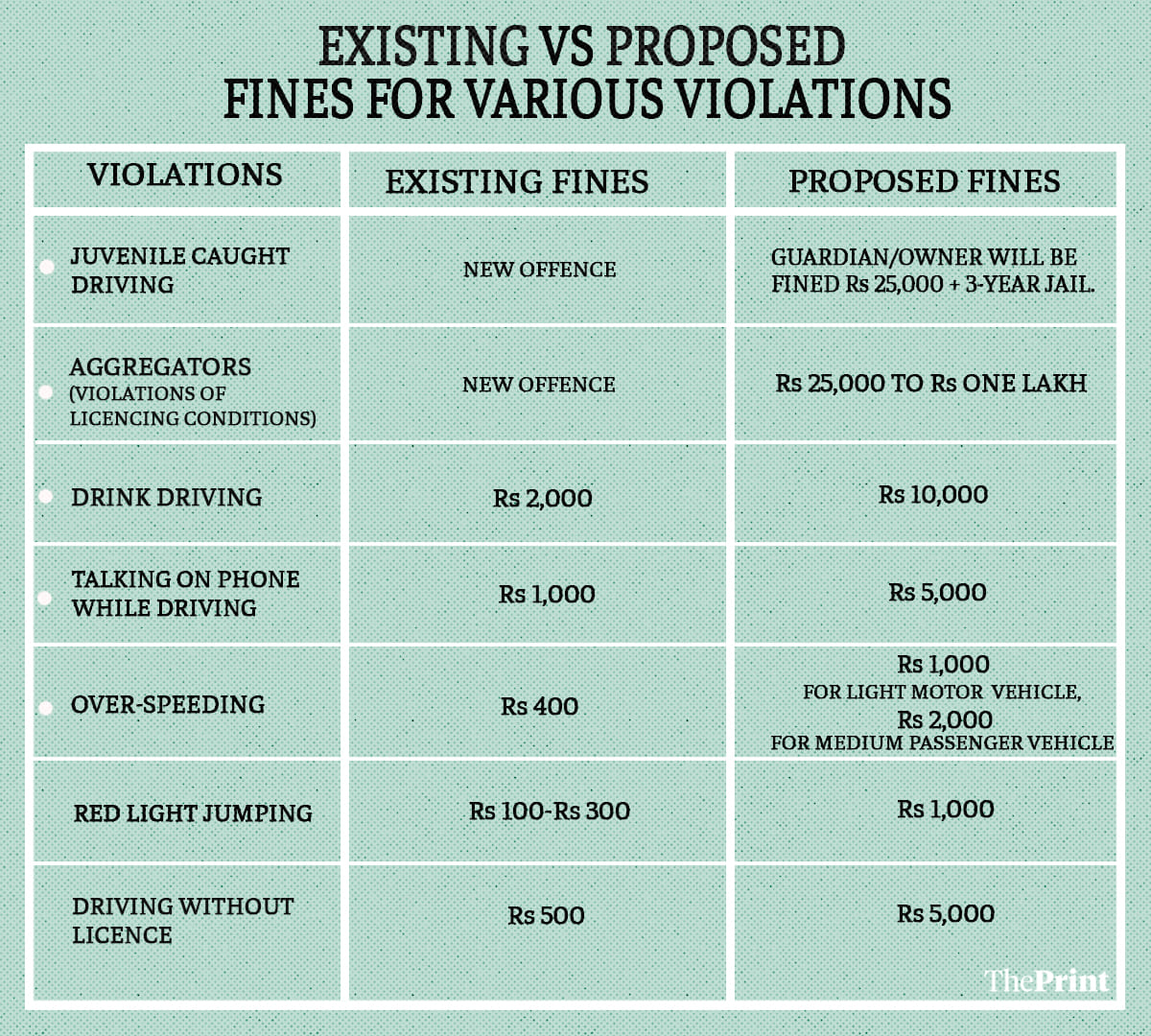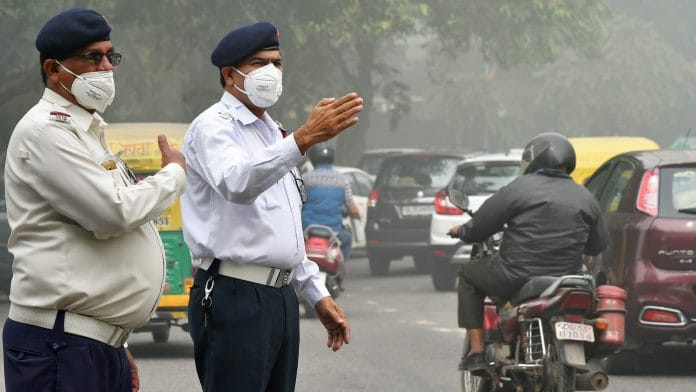New Delhi: Drink driving could invite a hefty fine of Rs 10,000 — up from the existing fine of Rs 2,000 — while those driving and talking on the mobile phone may have to shell out Rs 5,000, five times more than the existing penalty of Rs 1,000. Jumping red light may also get dearer, with a fine of Rs 1,000.
These and many more stringent provisions, aimed at ensuring road safety and checking rampant violation of traffic rules, are part of the landmark Motor Vehicles (Amendment) Bill that was cleared by the union cabinet Monday, government officials told ThePrint.
With the cabinet’s green signal, the decks have now been cleared for the Union Ministry of Road Transport and Highways, which is piloting the bill, to introduce it in the inaugural session of the 17th Lok Sabha, which began last week.
The bill, once approved, will replace the present 26-year-old Motor Vehicles Act, which was last amended in 2001. The bill was introduced in the Lok Sabha in August 2016 and cleared by the Lower House in April 2017, but it got stuck in the Rajya Sabha, where the opposition protested against several provisions of the bill. It subsequently lapsed after the 16th Lok Sabha was dissolved.

Three-year jail term for parents of minors
Once the bill is approved by Parliament, parents of minors who are caught driving and causing fatal accidents, could face up to three years in prison and a fine of Rs 25,000. This provision is not there in the existing law.
Besides, the bill also proposes compensation to the tune of Rs 5 lakh for families of fatal road accident victims within four months of the accident.
Uber, Ola to be covered
In a first, the proposed law seeks to bring taxi aggregators such as Uber and Ola under its ambit. Presently, there is no law to regulate them.
Aggregators violating licencing norms could invite a fine ranging between Rs 25,000 and Rs 1 lakh. The law has also proposed a mandatory vehicle recall policy, in case a defect is detected.
Besides, the law also proposes to penalise government servants found to be violating traffic rules. Such violators may have to pay twice the penalty imposed on general public.
Why did opposition oppose the bill?
Several parties, including the Congress, DMK, AIADMK and CPI(M), opposed certain provisions of the bill on the grounds that they would infringe on a state’s right.
For instance, Section 44 (clause 18) of the bill that puts the onus of registering vehicles on the dealers instead of the Regional Transport Offices (RTOs), was objected to. The bill also proposes penalties for dealers who fail to register a new motor vehicle. The opposition parties said this clause directly encroaches on states’ rights.
The BJP-led NDA is likely to have a majority in the Rajya Sabha in 2020, and until that time, the bill is not likely to sail smoothly through the Upper House.
Also read: On new Modi govt’s digital agenda — securing cyber space and a crackdown on cyber crime






